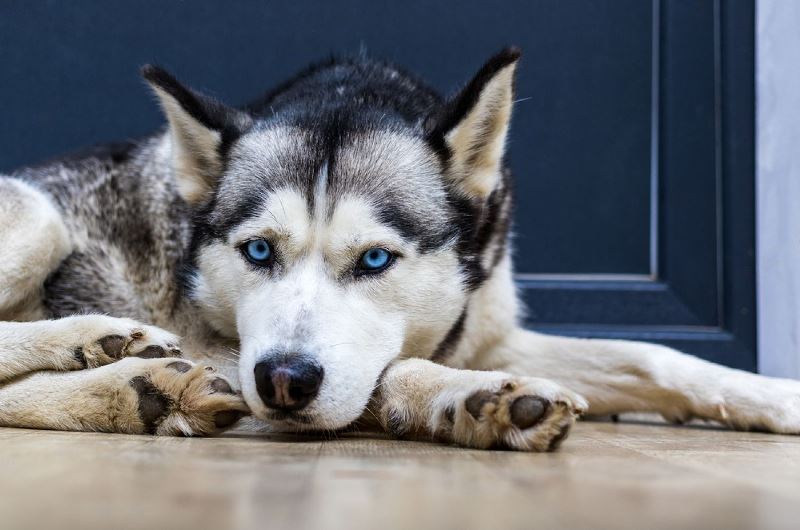Are Huskies Hypoallergenic? Huskies are among the most popular dog breeds, and it’s not hard to see why. They’re lovable, cuddly, and very good at cuddling back! But are huskies hypoallergenic? If you have dog allergies and have always wanted a husky but were afraid of being allergic to them, this article will help you figure out if they’re right for you.
What is Dog Allergy?
Dog allergy is one of the most common allergies in the United States. It is estimated that as many as 15% of people in the US are allergic to dogs. Dog allergies are caused by proteins found in a dog’s skin, saliva, and urine. These proteins can be inhaled, ingested, or come into contact with your skin.
Symptoms of a dog allergy include sneezing, runny nose, itchy eyes, and wheezing. If you think you may have an allergy to dogs, it is important to see a doctor who specializes in allergies. Your doctor will do an exam and ask questions about your symptoms and possible triggers.
After taking this information into account, they will recommend a course of treatment for you including over-the-counter medicines or prescription drugs such as antihistamines or immunotherapy injections.
Common Dog Breeds That People Suspect As Being Hypoallergenic
- Poodles are one of the most popular hypoallergenic dogs.
- Bichon Frises are another breed that is often thought to be hypoallergenic.
- Shih Tzus have hair instead of fur, which may make them a better choice for people with allergies.
- Maltese are small dogs that don’t shed much, making them another good option for those with allergies.
- Havanese also have hair and require very little grooming or bathing so they might work well for some allergy sufferers.
Some other dog breeds that are often believed to be hypoallergenic include: Cocker Spaniels, Schnauzers, Irish Water Spaniels, Welsh Terriers, Bichons, Lhasa Apsos, and Chihuahuas. However, no truly hypoallergenic dog breeds exist. If you think your allergies might be manageable with certain breeds then it’s worth researching more about each one before deciding on what type of dog you want to adopt!
How Do I Find The Right Puppy for Me If I Have Dog Allergies?
If you’re looking for a hypoallergenic dog, you’re out of luck. But that doesn’t mean you can’t find a pup that’s right for you, even if you have allergies. Here are a few things to keep in mind when searching for your new furry friend:
- Talk to your allergist: get professional guidance on what level of exposure to dander (the protein that causes allergic reactions) you can tolerate. Some people may be able to live with a lower level of exposure and still maintain healthy immune systems.
- Consider adopting two dogs or a mixed breed rather than one purebred:
- In addition, consider getting an older dog that has lived in different environments and accumulated less dander over time.
- Finally, find out if there is a Siberian husky rescue near you so that you can have some control over where your pet comes from. Remember, not all animals are created equal- it’s important to know what works best for you!
Can I Still Own a Dog If I Am Allergic to Them?
The short answer is yes, you can still own a dog if you are allergic to them. However, it is important to do your research before you adopt to make sure that you are prepared for the challenges that come with living with a pet that may cause allergies.
There are many hypoallergenic dog breeds that may be a better fit for someone with allergies. With proper management, such as regular grooming and vacuuming, you can likely still adopt a dog even if you have allergies.
Can Siberian Huskies Be Hypoallergenic Dogs For People With Dog Allergies?
No, huskies are not hypoallergenic, but they may be a good choice for people with allergies. Because of their double coat, huskies shed less than other breeds and produce less dander. With proper grooming and cleaning, you can reduce the number of allergens in your home.
If you’re considering adopting a husky, talk to your allergist first to see if it’s a good fit for you. Once adopted, keep up on grooming by brushing once or twice a week to remove dead hair and prevent mats from forming. Give your husky baths regularly (once every 2-3 weeks) using dog shampoo that doesn’t contain any fragrances or perfumes.
Use an anti-dandruff shampoo once per month during shedding season to keep shedding under control and clean their ears weekly with an ear cleaner designed for dogs.
A Conclusion About Being An Asthma Sufferer and Owning a Siberian Husky
After doing my research, I have decided that being an asthma sufferer and owning a Siberian Husky is not a good idea. Although there are ways to manage it, it would be best if I found another breed of dog that did not aggravate my condition.
